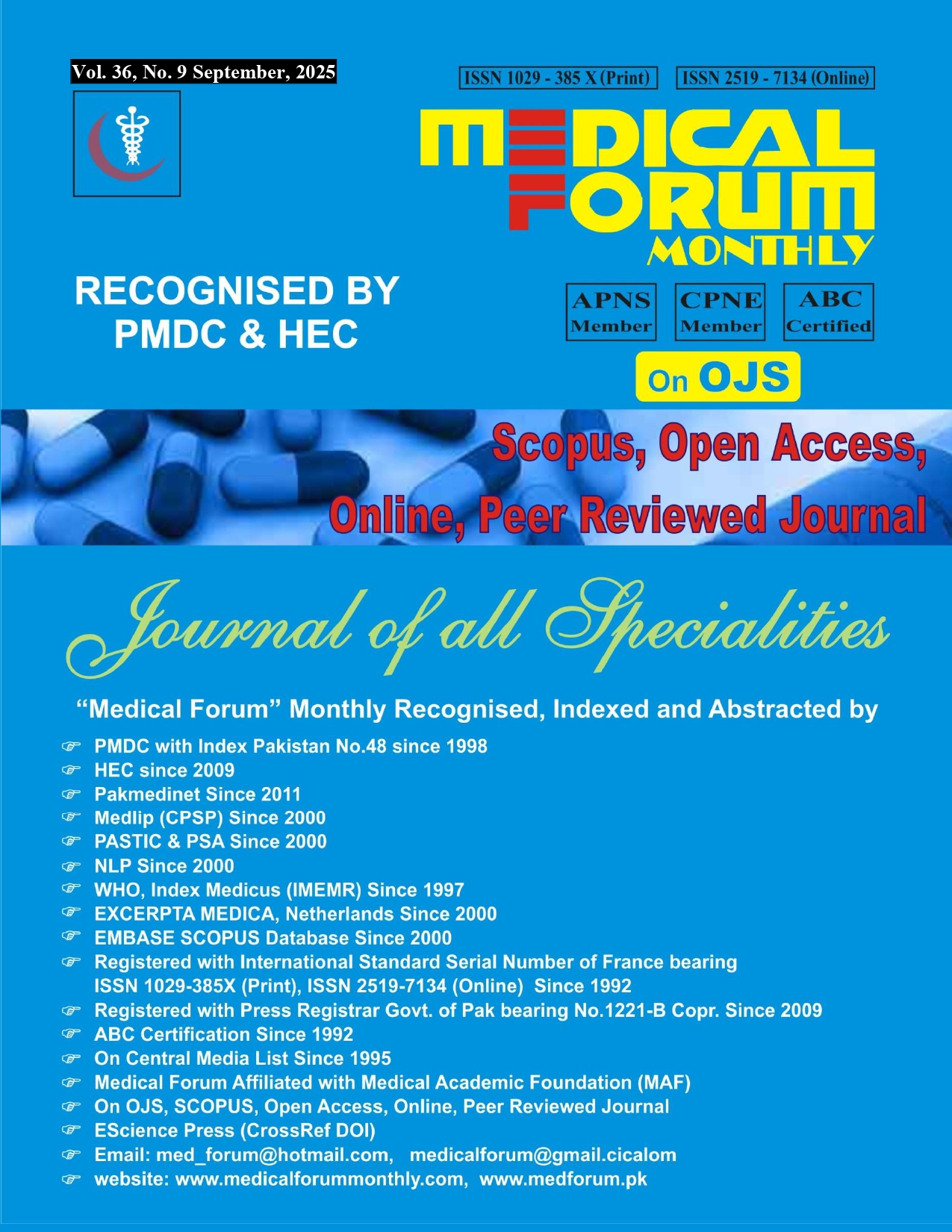Influence of Jigsaw and Traditional Teaching Methods on Psychological Well-Being and Academic Performance of Undergraduate Nursing Students
DOI:
https://doi.org/10.60110/medforum.360903Keywords:
Jigsaw teaching method, Traditional teaching, Psychological well-being, Academic performance,, Nursing educationAbstract
Objective: (i) To examine the influence of the Jigsaw teaching method on nurse educators’ knowledge and practices, and ii) to compare the impact of Jigsaw versus traditional teaching on the psychological well-being and academic performance of undergraduate nursing students.
Study Design: A quasi-experimental study
Place and Duration of Study: This study was conducted at the public sector nursing college from 1st January 2025 to 30th June 2025.
Methods: About 4 nurse educators and 160 second-year bachelor of sciences in nursing students were included in study. Pre-intervention and post intervention data were collected from nurses’ educators using knowledge, and practices check list. While pre and post intervention data were collected from nursing students on psychological well-being and academic performance.
Results: Nurse educators in the experimental group were younger between 25-30 years (50%) and had 6–10 years’ experience (100%), while those in the control group were older (31–45 yrs: 100%) with 11–15 years’ experience (100%). Knowledge scores improved in both groups post-intervention, from 100% poor knowledge to 50% fair and 50% good in the control group; however, statistical significance was not reached (p=0.102). Practice competency increased from 0-100% in the experimental group, compared with 0-50% in the control group (p=0.683). Among nursing students, psychological well-being significantly increased in the jigsaw group from 129.96±26.29 to 296.82±26.8 (p<0.001), and in the traditional group from 145.71±32.92 to 185.56±38.73 (p<0.001), with larger gains across all well-being subdomains in the experimental group. Academic performance in the experimental group shifted from 100% pass to 62.7% very good and 37.3% excellent post-intervention, whereas in the traditional group 96.5% remained in “pass” category.
Conclusion: The Jigsaw teaching method significantly improved psychological well-being, academic performance, skills, and attendance among nursing students compared to traditional teaching.
































 This work is licensed under a
This work is licensed under a 